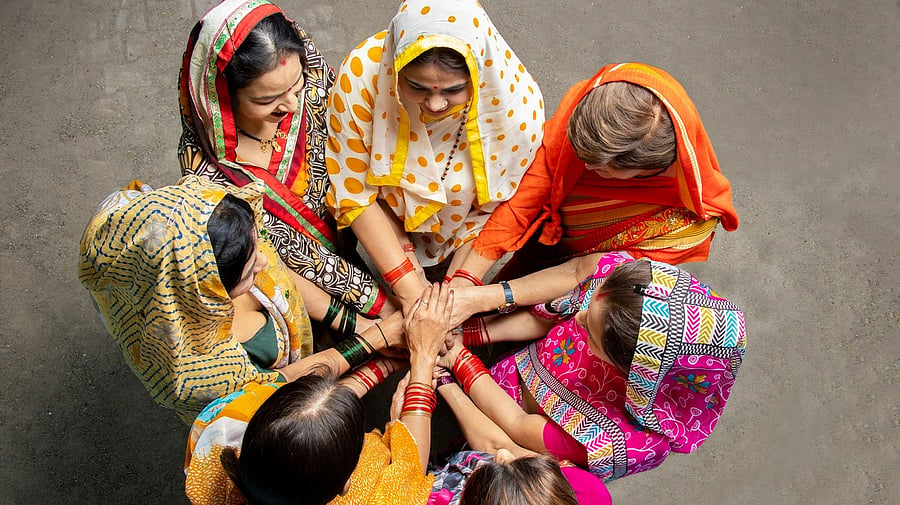
Representative image of a cooperative.
Credit: iStock Photo
As 2025 has been designated the Year of International Cooperatives, India—home to over a quarter of the world’s cooperatives—has launched the National Cooperative Policy 2025, a major initiative aimed at revitalising its vast cooperative sector. With over 800,000 cooperative societies and nearly one-third of rural citizens directly involved, the policy aims to reimagine cooperatives as engines of socio-economic transformation.
The policy envisions “vibrant and economically self-reliant cooperatives” as tools to improve member incomes and spur development. It outlines reforms in legal frameworks, financial access, technology, and market integration to build a more dynamic and resilient cooperative ecosystem. Legal and regulatory changes are central, aimed at granting cooperatives more autonomy, improving transparency, and easing the business environment. The policy also prioritises inclusive finance, particularly for marginalised and underserved communities, aligning with broader national goals of financial inclusion.
A flagship proposal is the creation of Model Cooperative Villages, one in each district, centred around Primary Agricultural Credit Societies (PACS). These villages are meant to demonstrate best practices in governance, technology, and diversified activity, serving as examples for others to follow. However, the success of this initiative depends on substantial investments in infrastructure and training. Without these, model villages risk becoming symbolic rather than transformational.
The policy emphasises greater participation of youth and women, especially from marginalised communities. It seeks to reframe cooperatives as people-centric rather than bureaucratic institutions, advocating participatory governance over top-down control. To support this shift, the policy calls for integrating cooperative education into formal and informal learning, building curricula that teach cooperative principles, and training youth and women for employment in the sector. A supportive ecosystem for trainers and educators is also envisioned to ensure broad dissemination of cooperative knowledge.
Technology and sustainability
Digitisation is a key focus, aiming to make cooperatives “future-ready” through digital platforms like Cooperative Stack and Agri Stack. These tools are intended to better integrate cooperatives into the broader digital economy. The policy also promotes sustainability and a circular economy approach, recognising these as strategic areas for innovation in line with global environmental goals. Still, concerns remain about centralisation. If not carefully designed, digital systems could marginalise grassroots voices and reduce democratic participation, especially in the absence of robust accountability measures.
Despite its ambitious scope, the policy faces several limitations:
Centralisation vs Federalism: While it nods to cooperative federalism, the policy leans toward central control. The lack of clear coordination mechanisms may undermine the autonomy of state-level cooperatives.
Model villages without a model code: The absence of a model cooperative code makes implementation inconsistent across states and open to political interference.
Symbolic inclusion: While inclusion of marginalised groups is emphasised, there are no legally binding mandates, making much of this rhetoric non-substantive.
Political interference: Cooperatives have long been vulnerable to elite capture. The policy fails to introduce safeguards against such risks, leaving space for misuse of cooperatives for political consolidation.
Over-centralised ERP systems: Though intended to increase transparency, enterprise resource planning (ERP) tools could further centralise control and data, sidelining small or diverse cooperatives.
Urban cooperatives overlooked: The policy remains predominantly rural and agrarian in focus, missing opportunities in emerging urban cooperative sectors like gig work, housing, sanitation, and construction.
To bridge the gap between aspiration and implementation, the following reforms are recommended:
National commission on cooperative governance: An independent body to ensure decentralisation, monitor political interference, and guide implementation.
Mandatory social audits: Regular audits to improve transparency and accountability from the grassroots up.
Model cooperative code: Legal standardisation across states to empower cooperatives and protect autonomy.
Cooperative innovation and resilience fund: A national fund to support experimentation, crisis response, and sustainable scaling.
Women and tribal cooperative equity mission: Targeted support for historically marginalised groups to ensure meaningful participation.
The National Cooperative Policy 2025 is an important step forward, reflecting a renewed commitment to participatory economic models. It improves upon past drafts, particularly the 2022 version, but risks becoming another well-intentioned document without real teeth. For cooperatives to thrive, they must be democratic, autonomous, and forward-looking — not mere instruments of state delivery. Realising their full potential demands institutional reforms grounded in the constitutional ideals of social and economic democracy. If implemented with accountability, equity, and vision, the policy could mark a genuine shift in how India harnesses its cooperative legacy — turning policy rhetoric into real, lasting transformation.
(Jose is a professor and head of the
Amity School of Economics, Amity University Haryana, Gurugram, and Jos is a former professor of the Ramakrishna Hegde Chair on Decentralisation and Development, Institute for Social and Economic Change (ISEC), Bengaluru)